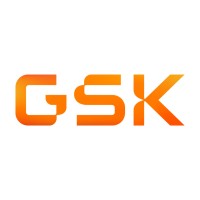
GSK
We are uniting science, technology and talent to get ahead of disease together. Our community guidelines: https://gsk.to/socialmedia



We are uniting science, technology and talent to get ahead of disease together. Our community guidelines: https://gsk.to/socialmedia

At Bristol Myers Squibb, we work every day to transform patients’ lives through science. That work inspires some of the most interesting, meaningful, and life-changing careers you’ll experience. Join us and pursue innovative ideas alongside some of the brightest minds in biopharma, collaborating with a team rich in diversity of experiences, and perspectives. We have built a sustainable pipeline of potential therapies and are leveraging translational medicine and data analytics to understand how we can deliver the right medicine to the right patient, at the right time, to achieve the best outcome. Whether in a scientific, business or supporting function, a career at BMS means you’ll be inspired every day to grow and thrive through opportunities that are uncommon in scale and scope. Here, you’ll be on the cutting edge of powerful innovation in oncology, hematology, immunology, cardiovascular disease, and fibrosis, with colleagues united in the mission to help patients. Through the Bristol Myers Squibb Foundation, we also promote health equity and seek to improve health outcomes of populations disproportionately affected by serious diseases and conditions. Our mission is to give new hope to help patients prevail over serious disease – it drives everything we do. Review our Social Media Community Guidelines at: https://www.bms.com/social-media-community-guidelines.html
Security & Compliance Standards Overview












No incidents recorded for GSK in 2025.
No incidents recorded for Bristol Myers Squibb in 2025.
GSK cyber incidents detection timeline including parent company and subsidiaries
Bristol Myers Squibb cyber incidents detection timeline including parent company and subsidiaries
Last 3 Security & Risk Events by Company
Angular is a development platform for building mobile and desktop web applications using TypeScript/JavaScript and other languages. Prior to versions 19.2.16, 20.3.14, and 21.0.1, there is a XSRF token leakage via protocol-relative URLs in angular HTTP clients. The vulnerability is a Credential Leak by App Logic that leads to the unauthorized disclosure of the Cross-Site Request Forgery (XSRF) token to an attacker-controlled domain. Angular's HttpClient has a built-in XSRF protection mechanism that works by checking if a request URL starts with a protocol (http:// or https://) to determine if it is cross-origin. If the URL starts with protocol-relative URL (//), it is incorrectly treated as a same-origin request, and the XSRF token is automatically added to the X-XSRF-TOKEN header. This issue has been patched in versions 19.2.16, 20.3.14, and 21.0.1. A workaround for this issue involves avoiding using protocol-relative URLs (URLs starting with //) in HttpClient requests. All backend communication URLs should be hardcoded as relative paths (starting with a single /) or fully qualified, trusted absolute URLs.
Forge (also called `node-forge`) is a native implementation of Transport Layer Security in JavaScript. An Uncontrolled Recursion vulnerability in node-forge versions 1.3.1 and below enables remote, unauthenticated attackers to craft deep ASN.1 structures that trigger unbounded recursive parsing. This leads to a Denial-of-Service (DoS) via stack exhaustion when parsing untrusted DER inputs. This issue has been patched in version 1.3.2.
Forge (also called `node-forge`) is a native implementation of Transport Layer Security in JavaScript. An Integer Overflow vulnerability in node-forge versions 1.3.1 and below enables remote, unauthenticated attackers to craft ASN.1 structures containing OIDs with oversized arcs. These arcs may be decoded as smaller, trusted OIDs due to 32-bit bitwise truncation, enabling the bypass of downstream OID-based security decisions. This issue has been patched in version 1.3.2.
Suricata is a network IDS, IPS and NSM engine developed by the OISF (Open Information Security Foundation) and the Suricata community. Prior to versions 7.0.13 and 8.0.2, working with large buffers in Lua scripts can lead to a stack overflow. Users of Lua rules and output scripts may be affected when working with large buffers. This includes a rule passing a large buffer to a Lua script. This issue has been patched in versions 7.0.13 and 8.0.2. A workaround for this issue involves disabling Lua rules and output scripts, or making sure limits, such as stream.depth.reassembly and HTTP response body limits (response-body-limit), are set to less than half the stack size.
Suricata is a network IDS, IPS and NSM engine developed by the OISF (Open Information Security Foundation) and the Suricata community. In versions from 8.0.0 to before 8.0.2, a NULL dereference can occur when the entropy keyword is used in conjunction with base64_data. This issue has been patched in version 8.0.2. A workaround involves disabling rules that use entropy in conjunction with base64_data.